authors
PANEL ONE: MAPPING & MODELING
“Taking Stock of the Underground: Maps and Extractive Industries in the Anthropocene”
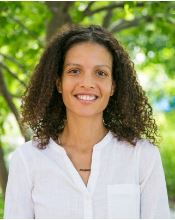
Sarah is an Assistant Professor in the Department of Anthropology at the University of California, Berkeley and a James & Mary Pinchot Sustainability Fellow at the School of Forestry and Environmental Studies at Yale University. She is a cultural anthropologist with a focus on climate change and the civil engineering sciences in the Caribbean/Latin America. Her current book project, Engineering Vulnerability: Expertise and Climate Change in Guyana, is about the politics of belonging that informs the climate adaptation of a major dam system. She is also working on a project that considers the cultural overlaps in the mapping of extractive resources and human trafficking in the Guiana Shield.
“This paper uses Guyana’s mines as a starting point to theorize the practice of mapping in the Anthropocene. I ask how mapping technologies become entangled with knowledge economies and the damage mining does to the earth.”
“From Dearth to El Dorado: The Cultural Politics of Nature, Knowledge, and Nation in the Articulation of Resource Wealth in Ecuador”

David Kneas is Assistant Professor of Geography at the University of South Carolina and holds a PhD in Anthropology and Environmental Studies from Yale University. He is currently completing a book that explores the histories and tensions between material and imagined resources in the Ecuadorian Andes.
“In this paper I am exploring the process through which Ecuador seemingly transitioned from a nation of resource scarcity to one of mineral plenty.”
“Groundwater Systems, Adversary Modeling, and Governance: Knowing and Contesting Inscrutable Hydrosocial Spaces and Circulations”
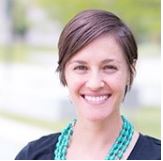
Adrianne Kroepsch is an Assistant Professor in the Division of Liberal Arts & International Studies at the Colorado School of Mines. She studies environmental governance in the American West with a particular focus on the subsurface resources of hydrocarbons and groundwater. Adrianne draws theoretically and methodologically from literatures in political ecology, science and technology studies, and environmental policy and communication. She earned her PhD in the interdisciplinary Environmental Studies program at the University of Colorado with an emphasis on environmental policy and theory. While at the University of Colorado, she also earned a masters degree in Geography, focused on hydrology and water politics and policy. At C.U., Adrianne was also fortunate to teach and study at the Center of the American West, a hub for scholarship and inclusive public dialog on contentious regional issues. Before graduate school she worked as a journalist covering science and technology policy, primarily at Congressional Quarterly in Washington, D.C. Her undergraduate degree is in Science and Technology Studies from Cornell University, with an emphasis on science communication.
“In this paper, I consider the implications of adversary modeling for the management of the subsurface commons.”
“Archiving the Earth: Decolonization and Mineral Mapping in Africa”
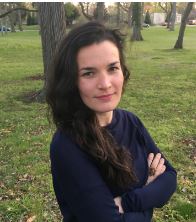
Robyn d’Avignon is Assistant Professor of History at New York University. She received her doctorate in Anthropology and History from the University of Michigan. Robyn studies the politics of natural resource extraction and scientific research in West Africa. Her book manuscript explores the pre-colonial and colonial roots of ongoing debates over the rights of agrarian communities to mine gold in Senegal, Mali, and Guinea. Robyn teaches courses on the history of Africa, the environment and technology, and humanitarianism.
“This study of mineral mapping missions conducted in Africa at independence examines the political histories of partnerships produced during the years, even decades, of exploration that precede the opening of a mine.”
PANEL TWO: MAKING COMMODITIES
“Forging Authentic Dinosaur Fossils: Matter, People and Power”
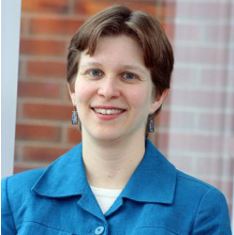
Elana Shever is an Assistant Professor of Anthropology at Colgate University, and a Fellow at the University of Rochester Humanities Center for 2016-17. She holds an AB from Brown University (1999) and a MA and Ph.D. from the University of California, Berkeley (2001, 2008). Her first book, Resources for Reform: Oil and Neoliberalism in Argentina, was published by Stanford University Press in 2012. She also has articles in American Ethnologist and Political and Legal Anthropology Review, and a chapter in a School for Advanced Research edited volume, among other publications. Her current book project is titled “Prehistoric Traces and Popular Icons: The Cultural Politics of Dinosaurs in the United States.” Her scholarship analyzes the political-economic and cultural processes that form people, natural materials and the relationships between them. It examines the capitalist production and consumption of two quite different subsurface materials, oil and dinosaur fossils, both of which have become highly-prized commodities around the globe.
“This paper examines an unusual form of subterranean extraction—dinosaur paleontology—in order consider whether natural materials, in this case fossils, have helped to create the paleontology-entertainment industry, and dinosaurs as a pop cultural phenomenon, in the contemporary United States. Are these solely human creations, or do the fossils themselves play a role in their creation as well?”
“Political Ecologies of the Toxic Subsoil: Soil Remediation and Environmental Justice in San Francisco”
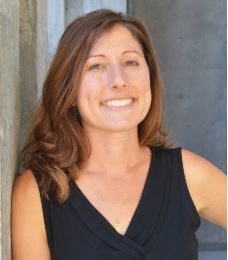
Lindsey is an assistant professor in Sociology at UC Santa Cruz, and affiliated with the Environmental Studies department and the Science and Justice Center. She received a Ph.D. in Geography from UC Berkeley in 2014, was a UC Chancellor’s Postdoctoral Fellow between 2014-2016 at UC Davis in the American Studies department. Her research interests lie at the intersection of feminist geography, urban studies, and political ecology, with a focus on environmental justice in U.S. cities. Her current book manuscript looks at the toxic articulation of race and toxic waste in San Francisco, focusing on the Hunters Point Naval Shipyard.
“In this paper, I examine the process through which the industrial subsoil becomes a commodity, and how this accumulation strategy conflicts with its often-toxic materiality for hazardous waste workers and local residents.”
“The Promise and Perils of Produced Waters”

Taylor Dotson is Assistant Professor of Social Science at the New Mexico Institute of Mining and Technology. A graduate of Rensselaer Polytechnic Institute’s STS program, Taylor’s research combines ideas from philosophy of technology and scholarship on the social control of risky technological systems in order to inquire into how contemporary technological societies might be more democratic, communitarian, and sustainable. Prior to becoming an STS scholar, Taylor studied to become a mathematician, spending several years teaching at a tribal college in rural Montana.
“This paper examines produced waters as a risky emerging technology, exploring a number of scenarios regarding the resource’s possible future politics. Hence, central to this examination are the questions ‘Who is likely to shoulder which risks?’ and ‘Who benefits from its promise?’”
“Tegu Trouble: Corporate Landscape Ecology and the Unravelling of a Chelonian World”
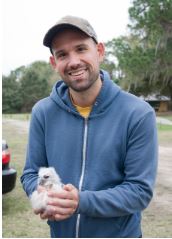
Zachary Caple is a doctoral candidate in Cultural Anthropology at the University of California Santa Cruz. Zachary investigates multispecies landscape change across the Holocene/Anthropocene planetary transition. His dissertation, Holocene in Fragments, describes how one industry — the phosphate fertilizer industry — has transformed the Florida peninsula through mining, agricultural runoff, and urban sprawl. His research has been funded by the National Science Foundation, Wenner-Gren Foundation, and the Social Science Research Council.
“I argue that mining works through pipelines that export capitalist value from resource frontiers to civilizational centers leaving behind landscapes of earth debt.”
PANEL 3: RISK KNOWLEDGE AND POLITICS
“Tasting and Testing: First Nations’ Perceptions of Wild Food Contamination in Alberta’s Oil Sands Region”
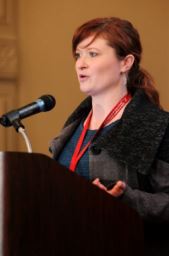
Janelle Marie Baker is a PhD Candidate in Anthropology at McGill University studying Cree perspectives on wild food contamination in Alberta’s oil sands region in collaboration with Bigstone Cree Nation and Fort McKay First Nation. Baker is an instructor in anthropology at Athabasca University and was recently a visiting PhD scholar on Professor Anna Tsing’s Niels Bohr Professorship project, Aarhus University Research on the Anthropocene: Discovering the Potential of Unintentional Design on Anthropogenic Landscapes. Baker is a past Warren Fellow at the McGill Institute for the Study of Canada, a Vanier Scholar, the 2013-2014 Canadian Federation for University Women CHEA Fellow, a 2014-2015 International Society of Ethnobiology Darrell Posey Fellow, and a current Canadian Northern Studies Trust Scholarship recipient.
“My core research objective has been to investigate Cree indicators for wild food contamination by exploring how knowledge (or ethnoecology) informs the concept of contamination.”
“Second Science: Grounding the Extractions’ Hazards through Collaborative Counter-Mapping”
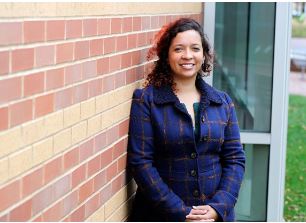
Lourdes Vera is a PhD student in the Department of Sociology and Anthropology and a member of the Social Science Environmental Health Research Institute (SSEHRI) at Northeastern University. As a former high school science teacher, she is interested in how D.I.Y. tools and data visualization can facilitate deeper understandings of scientific phenomena to mobilize individuals from all skill levels and backgrounds for environmental advocacy. As a research assistant to Sara Wylie, she is working to develop and validate an inexpensive photopaper tool that measures low, chronic amounts of the toxic gas hydrogen sulfide emitted from oil and gas production. Within this project, she is looking at how different disciplines approach questions of exposure and scientific validation. She is also working on establishing methods for interactive, open source mapping for community reportbacks and participant action research.
“We examine our interdisciplinary research team’s efforts to develop a community-centered method for mapping and measuring hydrogen sulfide (H2S), a neurotoxic gas associated with oil and gas production.”
“Rethinking Community Sovereignty in the Age of Fracking: The Global and Local of Forms of Mobilization in Lithuania”
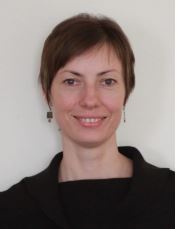
Diana Mincyte is an Assistant Professor in the Department of Social Science at The City University of New York – New York City College of Technology. Her research examines environmental and justice dimensions of agro-food economies in eastern Europe and the United States. Mincyte’s publications include articles in Environment and Planning A and D, Agriculture and Human Values, Sociologia Ruralis, Slavic Review, among others, book chapters, and several guest-edited special issues.
“Our research suggests that to understand community sovereignty in the context of the development of new energy infrastructures we need to draw connections between energy and communications channels, reinvigorated sovereignty values and international activist networks, and local mobilizations and global popular culture.”
“Thinking with tailings: mining waste, unruly vitalities, and the emergence of a Chilean Anthropocene”
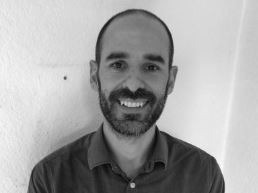
Sebastián Ureta is an Associate Professor at Departamento de Sociología, Universidad Alberto Hurtado (Santiago, Chile). Currently he is developing a research project analyzing the multiple ontologies of industrial waste in Chile, in particular the massive waste produced by the country’s booming mining industry. Since March 2015 he is also the PI of the Millennium Nucleus for Energy and Society Research (NUMIES), a new research group studying the interrelations between energy issues and society in Chile.
“This paper will present ethnographic vignettes taken from my current research on two tailings compounds in central and northern Chile. The paper explores which kind of political and ethical commitments we should device to start living with the unruly vitalities of mining waste.”
PANEL 4: EXPERTISE ABOVE AND BELOW GROUND
“Social blowouts’: practicing comparison and locating expertise in Bangladesh’s extractive industries”

Paul Robert Gilbert recently completed his PhD in Social Anthropology at the University of Sussex. His doctoral research was based on multi-sited ethnographic work carried out between London and Dhaka, and explored the role that legal, geological and financial expertise plays in opening up new frontiers for mineral exploration. He has previously worked on mine-community relations in Papua New Guinea and the marketization of biodiversity in the UK. Paul is currently a Lecturer in the School of Environment & Technology at the University of Brighton.
“In this paper, I examine two heated situations in which ‘underground’ and ‘overground’ expertise came into conflict in relation to contested extractive industry developments.”
“Data and Narrative: Cultivating Trust and Allure in Rare Earth Elements Exploration”
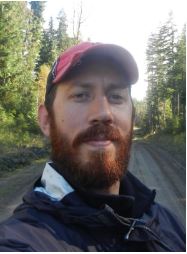
Tom Özden-Schilling is a postdoctoral fellow in the Canada Program at Harvard University’s Weatherhead Center for International Affairs. He recently completed his Ph.D in History, Anthropology, and Science, Technology and Society at MIT, where his dissertation investigated the politics of local belonging and environmental expertise in British Columbia through an ethnography of digital cartography and ecological modeling research groups studying the long-term environmental changes on the Gitxsan and Gitanyow traditional territories. Throughout his dissertation fieldwork and in his current research, Tom has also followed the changing legal and technological organization of mineral exploration in the Pacific Northwest. He is particularly interested in the links between virtual prospecting tools, ventures markets, and Indigenous land claims in the rural north.
“I argue that corporate geologists are learning to deploy new literary technologies – models, blog posts, and legal filings, in particular – not merely as proxies of analytical expertise, but as tangible artifacts of individual responsibility.”
“The Subterranean Foundations of Chile’s Astronomical Sky: Mining and Data-Mining in the Atacama Desert”
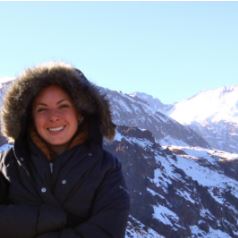
Katheryn M. Detwiler is a Ph.D. candidate in anthropology at The New School for Social Research in New York City. She received her B.A. from Lewis and Clark College in Portland, Oregon and a Masters in anthropology from The New School. Her doctoral research explores the conditions and consequences of the creation and circulation of massive data in Chile’s Atacama Desert—the driest non-polar desert on the planet, copper mining country, and location of nearly two-thirds of the world’s infrastructure for astronomical data production. Centrally, the dissertation details how the sky is fashioned to be a field of translatable information—collected by observatories in the form of cosmic light—through the regulation of illumination and communication infrastructures in desert communities and industries.
“Drawing upon ethnographic research with astronomers and light pollution regulators in Chile, I take the interface of the open-pit copper mine and the pristine sky for science as a site where the subterranean and the sky-borne interact, creating practical and technical problems that also refract open-ended questions about value and about the techno-political status of the Atacama.”
.